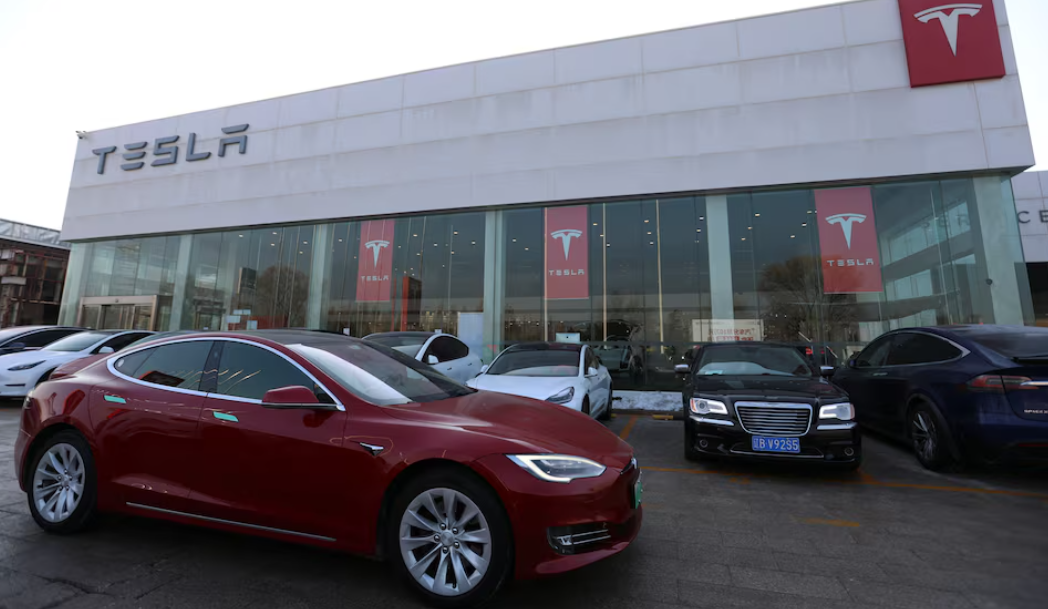Tesla’s China EV Sales Surge 37% in June: Strong Rebound Amid Competition
Tesla’s China EV sales jumped 37% in June 2025 to 61,000 vehicles, signaling a strong rebound amid fierce market competition.

Tesla delivered over 61,000 electric vehicles in China last month, outpacing rivals and signaling recovery in the world’s biggest EV market.
Tesla reported a robust 37% year-on-year increase in China electric vehicle (EV) sales for June 2025, delivering 61,089 vehicles across the mainland. The surge not only marks a turnaround for Elon Musk’s company after months of competitive pressure but also underscores renewed consumer confidence in Tesla’s offerings within the world’s largest EV market.
Tesla’s June Sales Outpace Rivals in China
Data released by the China Passenger Car Association (CPCA) on Wednesday shows Tesla’s June deliveries in China sharply rebounded from May’s total of 55,215 units, and are up from 44,352 in June 2024. The figures underline the automaker’s ability to regain momentum despite intensifying local competition and a volatile demand environment.
"Tesla’s performance in June is a testament to its strong brand appeal and competitive pricing strategy," said Zhang Yi, a Shanghai-based auto analyst with iResearch Consulting. “While Chinese rivals continue to innovate, Tesla remains a benchmark for foreign EV brands.”
Key Figures and Industry Context
June 2025 China Deliveries: 61,089 vehicles (+37% YoY)
May 2025 Deliveries: 55,215 vehicles
June 2024 Deliveries: 44,352 vehicles
Primary Model: Model Y, accounting for the majority of sales, followed by Model 3
Total H1 2025 Deliveries (China): Over 356,000 vehicles
Despite recent price wars and the launch of multiple new models by Chinese automakers, Tesla’s Shanghai Gigafactory—its largest facility outside the U.S.—remains central to the company’s Asia strategy.
Rebound Follows Period of Intense Competition
China’s EV sector has grown increasingly crowded, challenging Tesla’s early dominance. Domestic manufacturers such as BYD, Nio, and Xpeng have aggressively unveiled affordable, tech-laden EVs and engaged in price cutting to capture market share. In 2024, BYD overtook Tesla as the world’s biggest EV seller.
However, Tesla’s strategic price adjustments and focus on localized production helped it stave off a sales decline. Tesla reduced Model Y and Model 3 prices earlier this year, aligning them more closely with local competitors.
“We see a stabilizing of Tesla’s China operations," said Wu Xiaodong, senior researcher at the China EV 100 think tank. "The company’s response to market changes—including tech upgrades and pricing—has clearly resonated with Chinese consumers."
Market Dynamics: Consumer Preferences and Government Policy
Chinese customers have continued to demonstrate a strong appetite for EVs, spurred by ongoing government incentives and an expanding charging infrastructure.
EV Penetration in China: Now exceeds 40% of all new car sales
Government Incentives: Tax breaks, reduced license fees, and generous subsidies for qualified buyers
Charging Network: China operates the world’s largest network of public charging stations
These factors contributed to Tesla’s sales leap as buyers took advantage of time-limited incentives and carefully considered long-term vehicle ownership costs, analysts say.
Tesla’s China Manufacturing and Export Strategy
Tesla’s Shanghai Gigafactory manufactures Model 3 and Model Y vehicles not only for domestic consumers but also for key Asia-Pacific markets, including Japan, Australia, and New Zealand. In June, exports from the facility remained steady, though the bulk of vehicles were sold domestically.
“The Shanghai factory’s flexibility allows Tesla to quickly adapt to shifting demand, supporting both local sales and exports,” noted Fang Yue, head of automotive practice at MarketLine Analytics.
Chinese Automakers Respond
Despite Tesla’s strong June, competition in China’s EV market remains fierce. BYD recently rolled out the updated Seal and Dolphin models with improved battery technology and lower prices. Xpeng and Nio introduced advanced driver-assist features to differentiate themselves from both Tesla and each other.
BYD posted sales of approximately 130,000 pure EVs in China in June, still outpacing Tesla and solidifying its lead as the nation’s top EV brand.
Expert Perspectives
Elon Musk, Tesla’s CEO, did not comment directly on the China sales figures; however, in a recent earnings call, he reiterated the importance of innovation, saying, "Success in China requires relentless improvement and unbeatable value for customers."
Industry analysts caution that Tesla’s growth may slow in the second half of the year as competitors launch more affordable vehicles. “While this rebound is impressive, Tesla must continually invest in localization and technology to defend its share in this fast-maturing market,” said Sun Wei, automotive columnist at Caixin Global.
Tesla’s 37% jump in June 2025 China EV sales highlights both the resilience of the brand and intensifying competition in the world’s largest electric car market. The company’s strategic pricing, strong manufacturing base, and reputation for innovation helped fuel a dramatic rebound. Going forward, Tesla’s ability to maintain growth amid relentless rivalry from domestic automakers will be closely watched by analysts and investors alike.
Sources Used:
Reuters: Tesla’s China EV sales rise 37% y/y to 61,000 vehicles in June
China Passenger Car Association (CPCA)
Caixin Global
Bloomberg
MarketLine Analytics
Quotes from industry analysts and company statements
